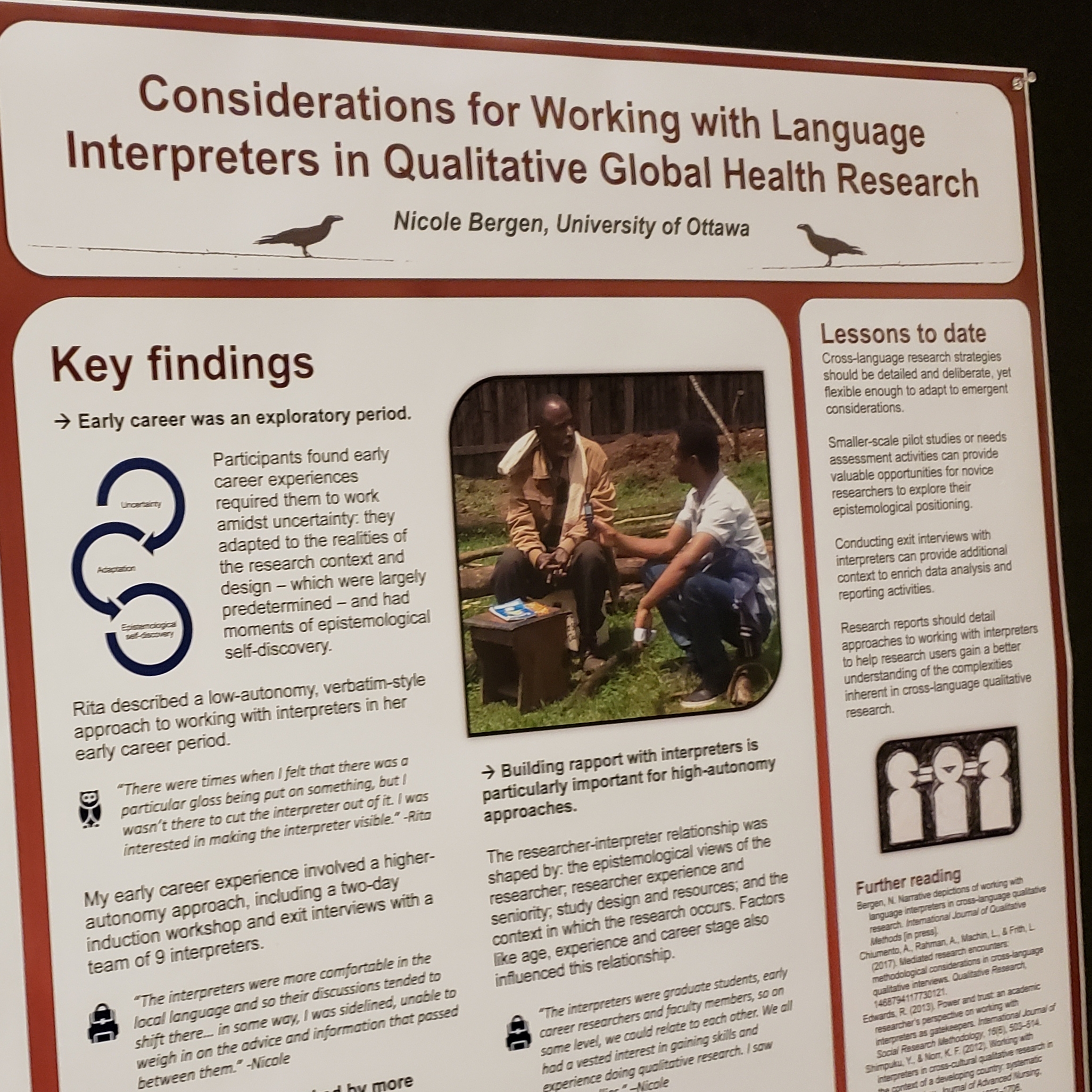I thought I understood the six principles – designed by the Canadian Coalition for Global Health Research – to guide global health researchers in conducting activities that are ethical and promote equity. They are: authentic partnership, inclusion, shared benefits, commitment to the future, responsiveness to causes of inequality, and humility, and they inform every step of the research process.
In her presentation at the Canadian Conference for Global Health, Dr. Katrina Plamondon challenged us to think of ways that we could use these principles in addressing some of the root causes of health inequality. Although I have always thought that global health research in itself aims at reducing health inequality, it never occurred to me how I could use my research design to promote equity.
In my reflection, one principle that provides great opportunity to redistribute power is the principle of Inclusion. Inclusion here implies conducting research in a way that gives genuine equal opportunities to people who have been historically marginalized to be engaged in our research process. This is not limited to participating in a study, but also means being involved in formulating the research question, research design and data collection. I asked myself, in light of the many ethical, geographic and in some cases security challenges/restrictions, how do we as researchers make sure we are intentionally creating opportunities for a diverse number of people to engage in our research, especially people who have been marginalized?
A similar question was raised during a small group discussion at the Data Detectives session: In a humanitarian crisis setting, how do we obtain data in zones beyond our reach which, more often than not, have little to no data? How do we effectively collaborate with community-based organizations to develop research questions? In other situations where academic structures, ethics requirements, and language barriers restrict engagement, how do we include these groups of people in our research process?
As Dr. Katrina Plamondon said: “we have to be innovative and proactive” to promote involvement.
During, the poster session I came across an innovative way of practising inclusion through local collaboration in a research study by Nicole Bergen (University of Ottawa) on the use of language interpreters in qualitative global research. This was a way of overcoming the language barrier in conducting research in Ethiopia – a country that has approximately 83 different languages. By partnering with a local language interpreter to conduct interviews, their research team was able to create the opportunity for people from different cultures, literate or illiterate, to participate in their research.
I will continue to ask myself: in what way can I promote equity through inclusion?

